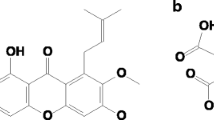Abstract
High-dose thiamine (vitamin B1) supplementation (100 mg/day) may be helpful in preventing or accelerating recovery from exercise-induced fatigue. Sixteen volunteer male athletes volunteer, 8 with a blood thiamine level of 40 ng/ml or more (normal thiamine group) and 8 with levels below that level (low thiamine group) were selected as subjects. They exercised on a bicycle ergometer and the effects of thiamine supplementation were compared with placebo. Blood thiamine level markedly increased following supplementation of thiamine for 3 days before exercise. Exercise-induced changes in hemodynamic parameters and cardiopulmonary function indicated the onset of fatigue. Thiamine supplementation significantly suppressed the increase in blood glucose in the normal thiamine group and significantly decreased the number of complaints shortly after exercise in the subjective fatigue assessment of 30 items.
Similar content being viewed by others
References
Fujii, N., Nabekura, Y., Gwon, O., Yamazaki, F., Homma, S., and Ikegami, H. (1992). Heart rate and plasma catecholamines responses to exercise at various intensities.Japanese Journal of Physical Fitness and Sports Medicine 41(3):313–321.
Itokawa, Y. (1975). Role of thiamine in excitable membrane of nerve.Vitamins (Japan),49:415–427
Itokawa, Y., Nishino, Y., and Igarashi, S. (1992). Evaluation of thiamin derivatives: human bioavailability, uptake by human blood cells, and conversion to thiamin by rat liver homogenate.Vitamins (Japan),66(1):35–42
Kobayashi, S. (1990). Correlation between exercise and nutrition.Health Care,32(3):159–162
Miyagawa, F., Kamegai, M., and Murayama, M. (1991). Plasma total and free dopamine, norepinephrine, epinephrine response to treadmill exercise.The Autonomic Nervous System 28(5):529–536.
Nakamura, M. (1971). The effect of thiamine tetrahydrofurfuryl disulfide on fatigue of workers in an iron works.Japanese Journal of Industrial Health,13(1):17–36
Nishiyama, I., Tanaka, T., and Tsumura, D. (1972). Effect of thiamin tetrahydrofurfuryl disulfide (TTFD) on physical fitness chiefly on muscle strength-double blind studies.Japanese Journal of Physical Fitness and Sports Medicine,21:6–15
Smidt, L.J., Cremin, F.M., Grivetti, L.E., and Clifford, A.J. (1991). Influence of thiamin supplementation on the health and general well-being of an elderly Irish population with marginal thiamin deficiency.J. Gerontol. (USA),46(1):M16-M22
Takahashi, H. (1981). The effect of thiamine deficiency on glucose metabolism in rat cerebral cortex.Journal of Nippon Medical School,48(5):61–74
Tsuji, S. (1991). Sports and vitamin/mineral.The Japanese Journal of Clinical Nutrition,78(1):46–52
Von Muralt, A. (1962). The role of thiamine in neurophysiology.Ann. N.Y. Acad. Sci.,98:499–507
Author information
Authors and Affiliations
Rights and permissions
About this article
Cite this article
Suzuki, M., Itokawa, Y. Effects of thiamine supplementation on exercise-induced fatigue. Metab Brain Dis 11, 95–106 (1996). https://doi.org/10.1007/BF02080935
Published:
Issue Date:
DOI: https://doi.org/10.1007/BF02080935




